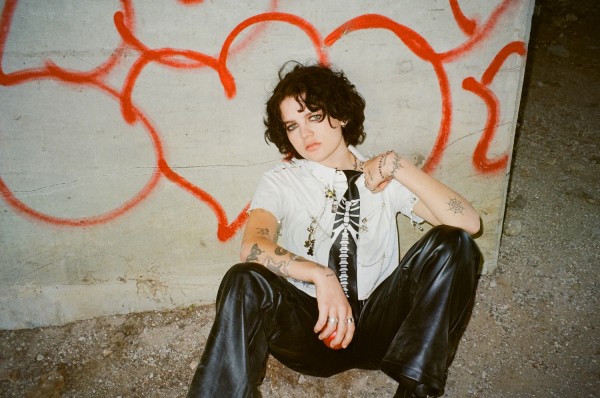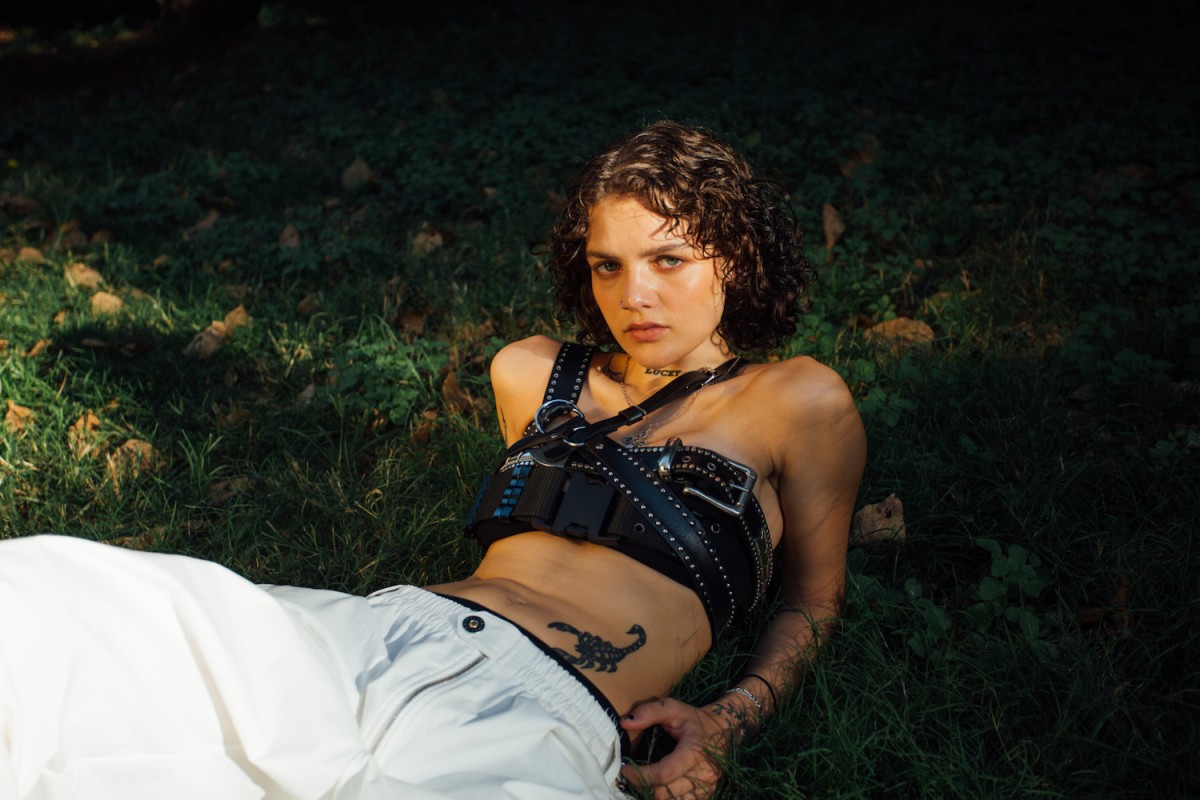22-year-old music sensation MAY-A is already flourishing as she challenges the status quo, and she’s only a few years into the game. One look at her work is enough to give you a taste of her distinct artistic identity — retro music videos where two women fall in love, rap-style videography while flowers are thrown into the crowd, and tour buses where proud queer women make up the crew seated inside.
The Australian native began her professional music career in 2019, with debut songs including poetic lyrics about themes such as what it’s like to be a young queer woman that she continues to employ today. Ever since then, MAY-A has gone on tours with well-known artists, opening for groups such as 5 Seconds of Summer and now, Nessa Barrett. MAY-A is rising up the charts, and makes it clear that she will pull others up with her, especially women and queer artists — all while dancing, belting to mosh-pits and throwing flowers.
This interview has been edited for length and clarity.
WSN: Is there anything you can share about your writing process and what you hope listeners gain from your songs like “Apricots” that unveil queer desire?
MAY-A: The writing process of that was just being kind of overwhelmed with feelings and writing some shit in the journal. Then I went into the studio, and I kind of just pulled different parts of the words that I’d written down and put it to music that I really felt supported it. It came together really quickly and it felt really good. Making that music video was also really, really freeing. I just did it with five of my female queer friends and it was super fun to make, but also just felt like a really nice way to celebrate queer joy.
WSN: How do you think songs and music videos like “Apricots” would’ve affected you as a kid?
MAY-A: I think every time I see queer media in any way, regardless if I’m drawn to it aesthetically or not, I am really appreciative of the fact that some kid is going to be affected by that in a positive way. I hope that this video could have done that for me. I think I would have felt quite seen.

WSN: Are there reasons you choose to employ retro aesthetics in your music videos, especially when your themes might be ones not as prevalent in older music?
MAY-A: I like doing the opposite. I like to pull from all the stuff that I love. I love mid-’90s movies, I love rap music. For example, the videographer that we have on all the shows — I found him through A$AP Rocky and Juice WRLD live videos. I was like, “that’s exactly what I want for the style videos and the music videos for us.” I wanted it to feel exactly how my high school life felt. The “LOLA” music video was shot on the street that I went to high school on, the street where I met a girl like that. It’s all my actual friends in that music video, a lot of them high school friends. It’s not necessarily that people have to know that, it’s that it changes the meaning of that video for me.
I did get lost in getting signed to a label and listening to everybody on the music videos and feeling really unfulfilled. I think that the “LOLA” video was one of the first ones coming back into being like “absolutely fuck this,” and it definitely paid off.
WSN: What is it like as an artist playing these songs about queer love in front of massive audiences? Does their response change depending on where you are?
MAY-A: The one thing that is always affirmed is that “Apricots” will always be the biggest song of the set. People just really get into it and it’s really lovely to watch. We always have this moment where we light up the whole crowd for the whole song, and we’ll throw flowers in the audience or something and get everybody to hug each other. It’s really sweet, actually. Sets change depending on where you are, but that song’s the one constant.
WSN: How would you describe the atmosphere of your concert for someone who’s never been?
MAY-A: Probably a little crazy, which is cool. It’s definitely female and queer-leaning — just a lot of people who want to feel seen. I always like to encourage people to just get in their bodies and, while they’re there, just fucking be there. People go to concerts to get out of their life for a minute, and I encourage people to do that as much as possible. People should expect to have a little dance, get some energy out.
WSN: Are there post-tour dreams fans should know about?
MAY-A: I’m working toward another body of music and figuring out what that sounds like. I’m trying to throw events and curate things for small artists that I think that people should be paying attention to. I’m really, really fucking excited just to try some different stuff.
Contact Tess McLafferty at [email protected].


























































































































































